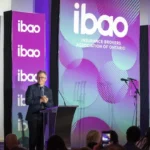

With Walid Hejazi—Professor of Economic Analysis & Policy, Rotman School of Management, University of Toronto
“The fourth industrial revolution has resulted in enormous amounts of data being made available,” said Walid. “Many companies collect these data but do not use them, or don’t use them fully. They’re losing out on incredible potential.”
In addition to his role as a Professor at U of T and his impressive academic accomplishments, Walid has worked closely with leaders within many companies to develop and implement ground-breaking strategies. This planning is rooted in data analysis, drawing on valuable resources that companies rarely use to their fullest extent.
“Much of my academic work involves using large volumes of data to identify opportunities for the development of business strategies or government policies to improve business and economy-wide outcomes. I’ve brought the learnings from this research into my work with senior business leaders to help them in many ways.”
Walid’s work helps to facilitate the design and implementation of strategies that can improve different aspects of a business’ operations, including:
- Efficiency of business processes—both in manufacturing and in a service environment
- Employee engagement strategies
- Efficacy of marketing campaigns
- Identifying how to successfully operate in foreign markets
- Achieving ESG goals
Making Economics Behave Realistically
Walid’s work builds on the foundations established by Kahneman and Tversky in their book Thinking Fast and Slow, which demonstrates that people often make predictable errors in judgement. This being the case, relying on business strategy models that assume people make fully rational and unbiased decisions is less than ideal. This is the basis of the field known as Behavioural Economics.
“The evidence is very clear that strategies informed by data yield better outcomes. However, many companies haven’t truly embraced what we call a data-driven culture. Moving to this kind of culture involves many steps. It’s not just about making better decisions. It’s about making decisions in a fundamentally different way. The decisions must be based on evidence rather than intuition, guesses or even best practices. Many companies have expressed a desire or an intention to engage in such an approach but haven’t. Instead, their managers and leaders still rely on their experience, their gut, or what they believe to be industry best practices.
“We always highlight the importance of knowing what you don’t know. Companies that have embraced a data-driven culture have been shown to improve their performance and market share. But this move requires a culture change and therefore a commitment from Senior Management.”
Closing the Gap
One of the biggest challenges Walid’s work identified is the gap—often a significant one—between the skill sets of data science teams and business leaders. There also needs to be more communication between those analyzing the data and those creating business strategies.
“These gaps have resulted in many ill-informed strategies and many missed opportunities. These two groups need to be better integrated. There must be feedback loops to ensure there’s an understanding of the data science and the creation of optimal strategies—these can’t be undertaken independently.”
Errors in Judgement
Jumping into looking at data from scratch doesn’t mean you’re looking at the data correctly. A certain amount of data literacy is required to draw meaningful insights from the data.
“One of the first lessons we teach when training managers and executives is that you don’t want to make a business decision based on an incorrect understanding of the data. Too often, simple analyses can lead decision makers to conclusions that seem obvious but aren’t. There are many reasons for this, but perhaps the two most common are the confusion between correlation and causation, and the use of models that aren’t well founded, for example a linear model when the relationship is non-linear.
“It’s imperative that managers and leaders in charge of making decisions can at least ask the right questions to ensure they’re not subject to such errors.”
Correcting Common Errors
Correlation ≠ Causation:
Two variables might seem to be related, but it’s crucial to not assume that you know their cause-and-effect relationship. The relationship could be the inverse of what it seems. Another unknown variable could be the underlying cause of both effects. A famous example is that in New York, sales of ice cream and gun violence track quite closely, so one could incorrectly assume ice cream causes gun violence—when really, both trends simultaneously increase along with warm weather.
Non-linearity:
When people use linear regression analysis to make predictions, they’re assuming that there’s a causal relationship between input and output. But in most real-life scenarios, the relationship isn’t linear. Just because sales went up over time, that doesn’t mean more time will equal more sales. Graphing a straight line going up and assuming it’ll keep going is almost never correct.
Making the Grade
Many cheap or free resources are available to help people become more literate in data use, including countless books and online courses from vendors like LinkedIn Learning or Udemy on data-driven decision-making. Walid recommends the Rotman School’s course, Business Analytics: Data-driven Decision Making.
“It’s so very important to underscore the significance of the data revolution. Enhancing one’s understanding of these new technologies and ways of doing things will serve as a competitive advantage. This doesn’t mean everyone has to become an expert in data science, or in AI or machine learning. But a better understanding of the implications of these areas will serve as an invaluable asset.”
Walid Hejazi is a Professor of Economic Analysis and Policy at the Rotman School of Management, University of Toronto. He is Academic Director of Rotman Executive Programs, a Fellow of the Michael Lee-Chin Family Institute for Corporate Citizenship, and member of the Board of Directors of the David & Sharon Johnston Centre for Corporate Governance Innovation. He is also academic director of the University of Toronto’s ESG Designation program, the first of its kind in Canada. He’s the co-author of the new book, Everybody’s Business: How to Ensure Canadian Prosperity through the Twenty-First Century.



